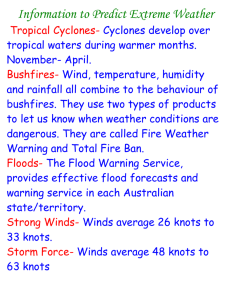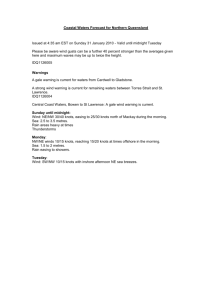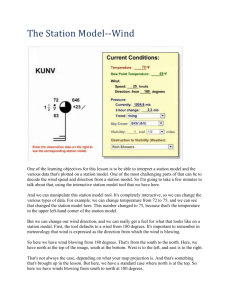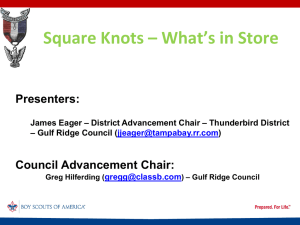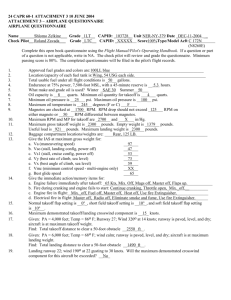Boeing 737-300 /
advertisement
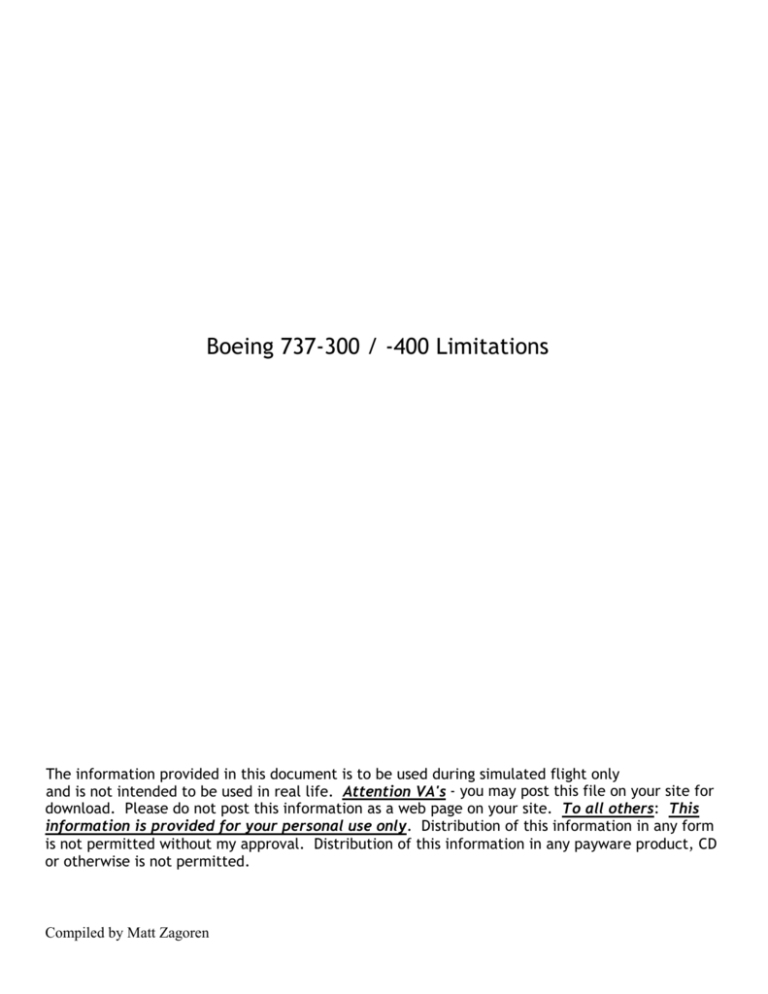
Boeing 737-300 / -400 Limitations The information provided in this document is to be used during simulated flight only and is not intended to be used in real life. Attention VA's - you may post this file on your site for download. Please do not post this information as a web page on your site. To all others: This information is provided for your personal use only. Distribution of this information in any form is not permitted without my approval. Distribution of this information in any payware product, CD or otherwise is not permitted. Compiled by Matt Zagoren WEIGHT LIMITS Takeoff Weight The takeoff weight (weight at brake release or at start of takeoff roll) is limited by the most restrictive of the following: • Maximum Climb Limited Takeoff - based on the aircraft's engine-out climb capability at a given density altitude • Maximum Runway Limited Takeoff Weight - determined by the ability of the aircraft to accelerate to takeoff speed on a given runway. • Maximum Certificated Takeoff Weight - the weight set by the manufacturer as the highest allowable under any conditions • Obstacle Clearance, Enroute, and Landing Limitations • Tire Speed and Brake Energy Limit Weights Landing Weight Maximum landing weight is limited by the most restrictive of the following requirements: • Maximum Landing Weight (Runway Length plus Obstacle, and including Limitations for Inoperative Equipment) • Maximum Landing Weight (Climb Limited) • Maximum Certified Landing Weight CERTIFICATE WEIGHT LIMITS Maximum Taxi Weight: Weight, Pounds 737-300 135,500 737-300LR 139,000 737-400 143,000 Maximum Takeoff Weight: 737-300 135,000 737-300LR 138,500 737-400 142,500 Maximum Landing Weight: 737-300 114,000 737-400 121,000 Maximum Zero Fuel Weight: 737-300 106,500 737-400 113,000 2 OPERATION LIMITS Maximum 90° crosswind component: 29 knots (AFM) Maximum 90° crosswind component for CAT II/IIIa approaches: 10 knots (AFM) Maximum 90° crosswind component, for landing 10 knots (AFM when visibility is less than 3/4 mile or RVR 4000, runway is less than 7,000 feet in length, and runway is wet or contaminated: Maximum takeoff and landing tailwind component: 10 knots (AFM) Maximum runway slope: +2.0%, -2.0% Flight maneuvering load acceleration limits: --- Flaps Up: --- Flaps Down: +2.5g to -1.0g +2.0g to 0.0g Maximum operating altitude: 37,000 feet Maximum takeoff and landing altitude: 8,400 feet Maximum flap extension altitude: 20,000 feet Maximum flight operating latitude: 73° North 60° South SPEED LIMITS Airspeed and Mach Number Limits Maximum operating airspeed: Vmo Pointer Maximum operating mach number: .82 (Mmo) Turbulent airspeed: 280 knots/.70M Maximum speed with Mach Trim INOP: .74M Maximum gear extension speed: 270 knots/.82M Maximum gear extended speed: 320 knots/.82M Maximum gear retraction speed: 235 knots Maximum Flap Operating Speeds Flaps 737-300 737-400 1 230 knots 250 knots 2 230 knots 250 knots 5 225 knots 250 knots 10 210 knots 215 knots 15 195 knots 205 knots 25 190 knots 190 knots 30 185 knots 185 knots 40 158 knots 162 knots Window Heat Inoperative Speed Limit With any window heat inoperative, the maximum speed below 10,000 feet and at an altitude where birds are likely to be encountered is 250 knots. 3 ICE & RAIN PROTECTION Wing Anti-Ice Operation • Wing anti-ice must be OFF for takeoff and must not be turned on prior to reaching 400 feet AFE. (AFM) • Do not operate wing anti-ice on the ground. (AFM) Operation In or Near Moderate To Heavy Rain, Hail, or Sleet When flight in moderate or heavy rain, hail, or sleet is encountered or anticipated, engine start switches must be set to FLT and a minimum 45% N1 must be maintained except on short final when landing is assured. FUEL Fuel Quantity Maximum Fuel Quantity (at a density of 6.7 lbs/gallon): Each wing tank: 10,000 lbs Center tank: 15,500 lbs 737-300 Aux Tank (if installed): 2,800 lbs 737-400 Aux Tank (if installed): 3,300 lbs Fuel Imbalance Maximum allowable fuel imbalance between tanks 1 & 2 is 1000 lbs. Fuel Usage Use center fuel tank to depletion followed by main tank fuel; however, a maximum of 1,000 lbs may be retained in center tank provided the effects of balance have been considered. FLIGHT CONTROLS Speedbrake Usage Speedbrakes should not be deployed in flight at radio altitudes less than 1,000 feet AFE. AUTO FLIGHT SYSTEM Autopilot • Do not engage autopilot below 1200 feet AFE during takeoff. (AFM) • Single Channel - The autopilot shall not remain engaged below 50 feet. • Dual Channel - The autopilot may be used for autoland. 4
